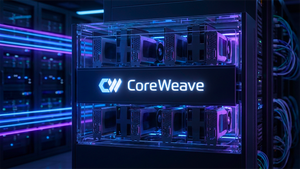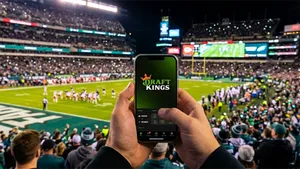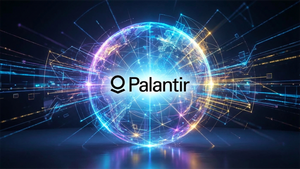Financial News
Verizon accelerates network slicing technology with new public safety use case
PHOENIX, Nov. 28, 2023 (GLOBE NEWSWIRE) -- Verizon, a leader in 5G technology and innovation, and Axon Enterprise Inc., (NASDAQ: AXON), a global public safety technology leader, recently demonstrated the ability to sustain performance levels for mission critical functions while passing video data over a network slice in a completely commercial 5G environment through Axon Fleet 3 and Axon Respond services.
Network slicing is a technology that allows customers to send data over virtual end-to-end networks tailored to specific application requirements, while also optimizing network performance to support all services. This capability, designed for network traffic on Verizon’s new cloud-native, containerized, virtualized standalone 5G core, will offer unprecedented levels of service agility, flexibility, and automated scalability.
In this demonstration on Verizon’s live 5G network in Phoenix, AZ, Axon ran side-by-side tests of its Axon Fleet 3 and Axon Respond solutions. The Axon Fleet 3 in-car video system provides live maps and live streaming from mobile cameras along with real-time situational awareness through Axon Respond to help enhance situational awareness for law enforcement members not on the scene.
“When engaging in a public safety incident, accurate and timely live streaming and location information is mission critical for enhancing law enforcement’s situational awareness and its ability to make decisions based on real-time, accurate information,” said Axon Senior Director of Product Management Black Bullock. “Our work with Verizon’s 5G lower latency network slice improved streaming rate success and accelerated time to first frame for our Axon Fleet 3 Respond services under both network congestion and cell edge conditions.”
In this demonstration, one video feed was run over a network slice on Verizon’s commercial 5G Ultra Wideband network and 5G Standalone core. The other test was run simultaneously over Verizon’s commercial 5G Ultra Wideband network without network slicing.
Results of the trial
The test results were measured in four categories.
- The time to first frame, which is the time between when a remote law enforcement officer requests a stream and when that officer can remotely access the live stream.
- Start percent, or the percent of time the stream started before timing out and causing the law enforcement officer not on the scene to potentially abandon remotely accessing video and call into law enforcement personnel on the scene instead.
- Latency, or the responsiveness of the application across the network.
- Jitter, which is the sequence and timing of the audio and video packages being sent across the network.
The results showed the application, while running over a Verizon network slice, had sustained performance levels. Compared to Verizon’s commercial 5G Ultra Wideband network, services on the network slice showed:
- 53% improvement in 95th percentile of time to first frame
- 5% improvement in start percent
- 68% improvement in latency
- 83% improvement in jitter
“This most recent network slicing demonstration shows one of many use cases where network slicing can be a game-changer for our enterprise, public sector, and Verizon Frontline customers,” said Adam Koeppe, SVP of Network and Technology Planning for Verizon. “We have undergone a massive transformation of our network over the past few years, including building on a cloud-native architecture, virtualizing from the core to the edge, building an advanced 5G standalone core, driving capacity in our fiber core, adding robust and varied spectrum assets, and infusing intelligence throughout the network. These changes allow us to develop and test this new technology that effectively matches the required network resources with the performance characteristics needed for an app or use case to work effectively.”
What is network slicing?
This unique 5G capability uses a virtualized network infrastructure to dynamically match network performance characteristics to specific application requirements, while optimizing the network performance to support all services. The advanced capabilities, high speed, increased bandwidth, and low latency of 5G is inspiring development of a wide variety of new use cases that include everything from massive numbers of IoT devices that use very few network resources, to smartphone applications that use data in countless ways, to more complex solutions such as gaming, AR/VR and mixed reality that will require massive computing capabilities and low latency on the edge of the network. Those solutions would each benefit from different combinations of network capabilities. The 5G standalone core’s cloud-native virtualized applications, in combination with built-in Artificial Intelligence (AI) and Machine Learning (ML), will enable the dynamic allocation of the appropriate resources, referred to as network slicing. It will also allow for automated network configuration changes, including the ability to scale up or scale down network function capacity in real time - to provide the right service levels and network resources needed for each use case.
For example, utility company smart readers use very little bandwidth, are not latency sensitive, and do not need mobility routing functions as they are in a fixed position attached to homes and do not move. This use case would require fewer network resources. Alternatively, massive multi-player online gaming in a mobile environment would benefit from certain upload and download speeds and low latency to work effectively and provide players an immersive experience on a mobile device. In each case, using network slicing, Verizon would be able to better match network performance to application requirements. In short, dynamic network resource provisioning allows the network to dynamically support the experience customers should get for the applications they are using and efficiently provide that specific service level when resources are available.
Verizon Communications Inc. (NYSE, Nasdaq: VZ) was formed on June 30, 2000 and is one of the world’s leading providers of technology and communications services. Headquartered in New York City and with a presence around the world, Verizon generated revenues of $136.8 billion in 2022. The company offers data, video and voice services and solutions on its award-winning networks and platforms, delivering on customers’ demand for mobility, reliable network connectivity, security and control.
VERIZON’S ONLINE MEDIA CENTER: News releases, stories, media contacts and other resources are available at verizon.com/news. News releases are also available through an RSS feed. To subscribe, visit www.verizon.com/about/rss-feeds/.
About Axon
Axon is the technology leader in global public safety. Our moonshot goal is to cut gun-related deaths between police and the public in the U.S. by 50% before 2033. Axon is building the public safety operating system of the future by integrating hardware devices and cloud software solutions that lead modern policing, defense and security. The Axon ecosystem includes TASER energy devices, body-worn cameras, in-car cameras, cloud-hosted digital evidence management solutions, productivity software, real-time operations capabilities and third-party integrations through Axon's partner network. Axon's growing global customer base includes first responders across international, federal, state and local law enforcement, fire, corrections and emergency medical services, as well as the justice sector, commercial enterprises and consumers.
Non-Axon trademarks are property of their respective owners. Axon, Axon Fleet, Axon Respond and TASER are trademarks of Axon Enterprise, Inc., some of which are registered in the US and other countries. For more information visit www.axon.com/legal. All rights reserved.
MEDIA CONTACT:
Karen Schulz
864.561.1527
Karen.schulz@verizonwireless.com

More News
View More




Recent Quotes
View MoreQuotes delayed at least 20 minutes.
By accessing this page, you agree to the Privacy Policy and Terms Of Service.



